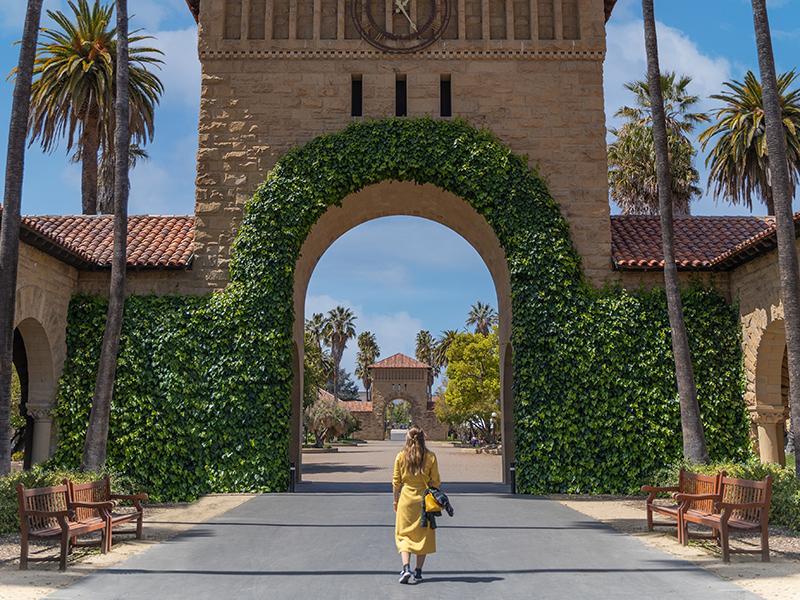As a practitioner-turned-academic, I have a predisposition towards academic research that betters the lot of humanity and/or our world. That is, advances in medical practice, environmental improvement or similar, where the evidence of improvement to people or the planet is tangible and not some strange proxy of “impact” according to the grading of an academic journal.
However, this hard line has rather adjusted over the past few weeks. And it was partly the doing of Jim Al-Khalili and one of his Life Scientific guests on BBC Radio 4. The detail evades me (I am 65!), but the overall thread was that a scientist had been beavering away for years on what appeared to be an arcane bit of biomedical research. Then, along came 2020 and Covid-19. Suddenly, he and his work were thrust to the forefront of combatting a pandemic through development of vaccines.
- How to publish responsible reproducible research
- Why learning to listen will help you avoid ‘helicopter research’
- How to succeed at policy engagement, part one: define your purpose
The point is that what may appear in the immediate term “academic”, without apparent practical application, can – at some future point – turn out to be groundbreaking, of great practical benefit and breach barriers through paradigm shift. In 1939, Abraham Flexner, director of the American Institute for Advanced Study, authored an essay called The Usefulness of Useless Knowledge. In it, he strongly argued for endeavour to make a better and fairer world, otherwise “millions will continue to go to their graves silent, saddened and embittered”.
But he also argued that, in tandem, “unobstructed pursuit of useless knowledge will prove to have consequences in the future as in the past”. In other words, what you see is not always what you get. Instant gratification is fine and dandy, but there has to be room for the slowly unfurling value and impact of research.
Einstein’s work on relativity, for example, underpinned development of atomic clock technology that enables global positioning systems (GPS). Flexner went on to cite the work of Clerk Maxwell (who?), whose 1865 experiments in the field of magnetism and electricity led to equations published in 1873. Years later, the well-known inventor Guglielmo Marconi was able to apply Maxwell’s formulae and thus radio was born. Flexner argued that Maxwell was a genius “without thought of use. Marconi was a clever inventor with no thought but use.” The relationship was symbiotic, whereby each needed the other, in the same way that a conceptual artist has ideas that more hands-on artists craft into form and being.
Similarly, in my own small town – best known for the arrival of the Winchcombe Meteorite in 2020 – there is a blue plaque in a side street celebrating Christopher Merrett (who?). It was Merrett, a founding fellow of the Royal Society, who first described the distinctive méthode champenoise, years before the French monk Dom Pérignon began his experiments. In 1662, Merrett presented a paper in which he described how to make sparkling wine: “Our wine-coopers of latter times use vast quantities of sugar and melosses [molasses] to all sorts of wines, to make them drink brisk [frothy] and sparkling.” Merrett had the idea; his Gallic colleague made it happen.
In a direct confrontation with market-driven teaching and research, Flexner asserts that institutions of learning “should be devoted to the cultivation of curiosity, and the less they are deflected by considerations of immediacy of application, the more likely they are to contribute not only to human welfare but to the equally important satisfaction of intellectual interest”. He also used a wonderful and graphic analogy: “Science, like the Mississippi, begins in a tiny rivulet in the distant forest. Gradually other streams swell its volume. And the roaring river that bursts the dikes is formed from countless sources.”
The mere fact that research can “bring satisfaction to an individual soul bent upon its own purification and elevation is all the justification that they need”. The process is the product (and the vehicle for unsought practical advancement).
American cancer specialist Anees Chagpar argues that there can be “wisdom contained within statistically non-significant or negative studies. These are not failures but rather insights upon which we can build future studies. In baseball, no one expects every hit to be a home run. In business, products continually need refinement and rarely resemble the initial prototype…As one of my mentors once said: ‘That’s why we call it RE-search.’”
So, what do I think the lesson is for universities in 2023? First off, academic managers can promote a balance between instant gratification and the pursuit of “pure” longer-term research. In other words, allow room for a diversity of inputs and outcomes. Clearly, the world is in a parlous state, given soaring summer temperatures, mass migration, poverty and war, so applied research with short-term gains is essential. But equally, as I have argued, knowledge acquisition is also a valid end in itself that – in due time – can be harnessed to practical effect. Rather like a relay race, the academic can provide research breakthroughs so that the baton, at some future point, can be passed to the implementer.
Looking at it dispassionately, even research-intensive institutions gain minority funding from research (as opposed to tuition fee income), so to an extent releasing some academics from chasing research funding to pursue their own interests can broaden knowledge acquisition away from the narrow channel of funder-driven priorities and short-termism.
Universities and academics also need to draw back from the headlong publication mill, whereby research of doubtful quality is published in equally doubtful journals – some of which charge for the privilege and appear years after the research was undertaken. Furthermore, journal editors can ensure that research is made available through open sourcing so that it finds its way into the public domain and there is increased chance of findings influencing policies and implementation.
Academics preach that students should question and then work toward their own evidenced conclusions. Shouldn’t academic researchers follow the same path, probing for ways forward, rather than reinforcing orthodoxy? Paradigm shift comes from such scrutiny – and thinking the unthinkable.
James Derounian is a national teaching fellow who lectures on the community governance courses run in partnership between the Society of Local Council Clerks and De Montfort University.
If you would like advice and insight from academics and university staff delivered direct to your inbox each week, sign up for the Campus newsletter.




comment1
(No subject)